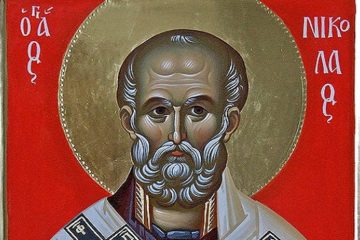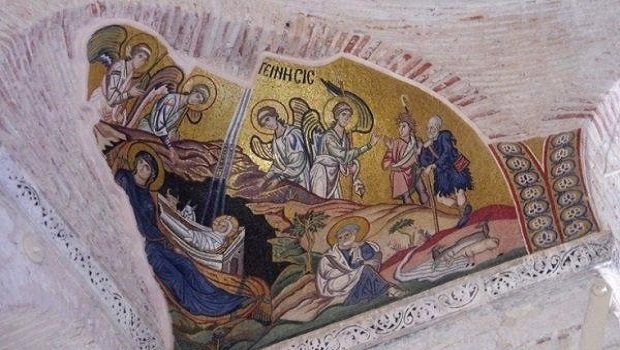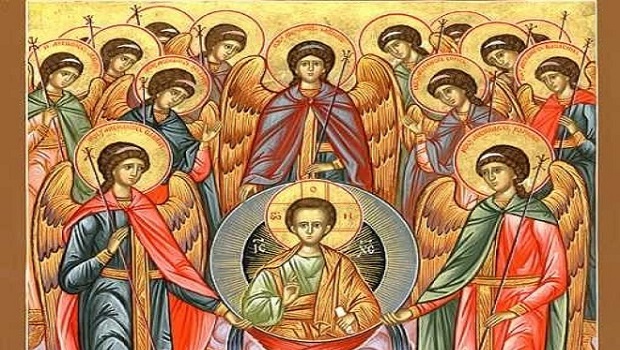Athanasios Moustakis
‘When Abraham was called, by faith…’
As is the case every year, the Epistle reading for the Sunday before the Nativity of Christ focuses on faith. It consists of two excerpts from chapter 11 of Paul’s Epistle to the Hebrews (verses 9-10 and 32-40) in which the Apostle highlights the reality of trust in God.
What is the relationship between the faith of Abraham, Sarah, the Judges and the Prophets of Israel and the imminent event of the Nativity?
Why has the Church set it as the Epistle reading for this Sunday?
We shall have to seek the answer to this in the fact of the Nativity and its significance for our world and for us as people.
This event marks a break in human history and in time and in our relationship with God and our fellow human beings. Quite simply, the significance of the feast is to be found in the fact it has given each person the opportunity to reconcile with God and our neighbour. It’s an event of the most sublime humility and extreme obedience, which offers us the possibility of changing course and setting other priorities in our life.
How did God manage this?
Here, I think, lies the key to the understanding of the Epistle reading for the last Sunday before Christmas.
For all this to become possible, for us to be able to return to the embrace of God, God had to enter history in a simple way, but one which was decisive and friendly towards His creation. Shattering, comprehensible, yet at the same time inaccessible to reason.
This way was the conception from the Holy Spirit and the birth from the Virgin of the Son and Word of God.
But in every age there have been people who have asked: ‘Who on earth believes things like that nowadays?’
This is where Holy Scripture, as bearer of the word of God and the Church as the treasury of His grace, can say a lot of things, which will mean nothing to some people and everything to others.
This is where faith has to work in us.
Our relationship with God, as we know from His revelation in our world, is defined by the absence of logical proofs which would draw us into an intellectual acceptance of Him. Rather, there are many important indications which, without coercion, show us the course of our relationship with Him and cause us to believe.
Faith doesn’t ‘suffocate’ us; it opens ways of thought and action which we had previously never imagined.
This faith doesn’t bind the faithful, but frees them and offers them the opportunity to deny Him.
This faith has nothing to do with certainties but brings us to place our trust in God and His word when we’re on the edge of the cliff.
The classic example of faith/trust is Abraham, who answered God’s call without hesitation and obediently changed his life and set off for an unknown, foreign destination. With faith, Sarah accepted the seed from God which, against all reason, began to grow within her.
Their descendants lived and died with faith.
In a similar fashion Noah had been a laughing-stock among those around him when he built the ark, insisting that he was acting in accordance with God’s command, though this was incomprehensible to them.
The Judges, the Prophets and the righteous in the Old Testament all acted with faith.
All the martyrs, old and new, men and women, grown-ups and children all acted with faith when faced by death.
The way Saint Paul presents the matter to us helps us prepare for the Nativity of Christ in the best way possible. He brings us to the realization that each of us has to take a stance as regards the Lord. He makes it plain that our relationship with God, as this is expressed in Orthodox tradition, is a bold step which tests rather than secures, which discomforts rather than shelters. Faith is necessary if we’re to feel what happened in Bethlehem. If we approach it through the lens of reason, we’ll be disappointed. We’ll be faced with a blank wall and before we know where we are we’ll have lost our way.
So if you’re approaching the Church in the hope of a reasonable -household management- type of insurance, or if you treat it as powerful psychological alibi for your way of life, or if you’re looking for some human certainty or seeking unshakeable authority and wish to make yourself comfortable in its embrace and provide for your old age and book a place in Heaven, on a sort of exchange basis, you’re better off not bothering. Because it’s certain that you’ll soon be disappointed.
Merry Christmas!
Source: pemptousia.gr




0 Comments